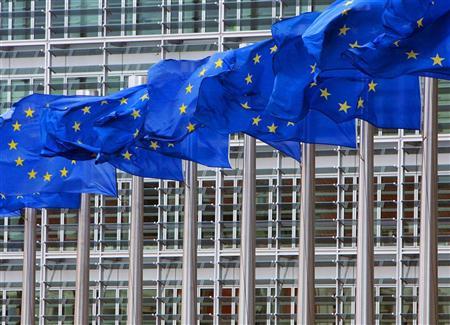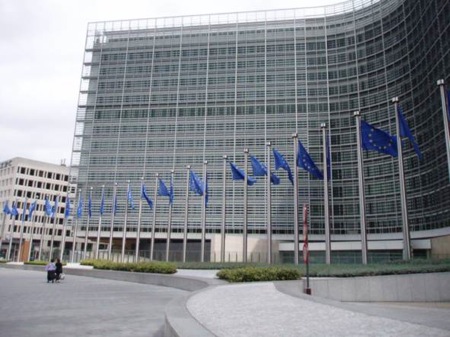
Si abbatte anche su Intel la mannaia dell’Unione Europea: Intel starebbe approfittando della sua posizione dominante del mercato.
L’UE contro Intel
Nella giornata di ieri la Commissione Europea ha diramato un comunicato stampa per confermare di aver inviato una Comunicazione di Addebito (“Statement of Objections”) a Intel.
Secondo la commissione europea Intel sarebbe colpevole della violazione dell’articolo 82 del trattato CE, cioè di abuso di posizione dominante, in almeno tre casi: nel primo caso Intel avrebbe offerto sconti significativi a diversi OEM condizionandoli ad utilizzare prevalentemente i suoi prodotti. In diversi casi inoltre Intel avrebbe pagato somme consistenti per ritardare o far cancellare il rilascio da parte di alcuni suoi partner, di prodotti Amd based. Terza e ultima contestazione fatta dalla Commissione Europea riguarda il settore server nel quale Intel avrebbe offerto i suoi prodotti sotto costo per eliminare dalla competizione il suo rivale AMD.
La richiesta alla Commissione Europea di indagare sulle presunte pratiche scorrette di Intel è venuta dalla stessa AMD; il primo commento a caldo alla notizia di avvio della procedura è stato di Giuliano Meroni, President AMD for Europe, Middle East and Africa (EMEA): “E’ il momento della verità per l’intero settore IT. La Commissione Europea è seriamente intenzionata a far cessare l’abuso della posizione dominante di Intel sul mercato globale dei microprocessori”. “Siamo fiduciosi che questa Comunicazione di Addebito agisca da catalizzatore per aprire i mercati globali dei microprocessori a vantaggio sia dei consumatori che dei produttori di PC”.

Intel si è difesa affermando che nei casi menzionati Intel ha agito seguendo le normali regole di marketing non danneggiando né la concorrenza né i consumatori e la prova è nel mercato altamente competitivo.
Intel ha ora 10 settimane di tempo per rispondere alla Commissione Europea che, nel caso ritenesse le obiezioni di Intel fondate potrebbe ritirare l’accusa, in caso contrario invece potrebbe procedere alla comminazione di una multa fino al 10% del fatturato della compagnia (sulla scorta di quanto fatto con Microsoft) e intraprendere azioni per evitare la reiterazione di pratiche anticoncorrenziali
Di seguito il comunicato in inglese rilasciato dalla Commissione Europea
Competition: Commission confirms sending of Statement of Objections to Intel
Reference: MEMO/07/314 Date: 27/07/2007
Brussels, 27 July 2007
The European Commission can confirm that it has sent a Statement of Objections (SO) to Intel on 26th July 2007. The SO outlines the Commission’s preliminary view that Intel has infringed the EC Treaty rules on abuse of a dominant position (Article 82) with the aim of excluding its main rival, AMD, from the x86 Computer Processing Units (CPU) market.
In the SO, the Commission outlines its preliminary conclusion that Intel has engaged in three types of abuse of a dominant market position. First, Intel has provided substantial rebates to various Original Equipment Manufacturers (OEMs) conditional on them obtaining all or the great majority of their CPU requirements from Intel. Secondly, in a number of instances, Intel made payments in order to induce an OEM to either delay or cancel the launch of a product line incorporating an AMD-based CPU. Thirdly, in the context of bids against AMD-based products for strategic customers in the server segment of the market, Intel has offered CPUs on average below cost.
These three types of conduct are aimed at excluding AMD, Intel’s main rival, from the market. Each of them is provisionally considered to constitute an abuse of a dominant position in its own right. However, the Commission also considers at this stage of its analysis that the three types of conduct reinforce each other and are part of a single overall anti-competitive strategy.
Intel has 10 weeks to reply to the SO, and will then have the right to be heard in an Oral Hearing. If the preliminary views expressed in the SO are confirmed, the Commission may require Intel to cease the abuse and may impose a fine.
Background
A Statement of Objections is a formal step in Commission antitrust investigations in which the Commission informs the parties concerned in writing of the objections raised against them. The addressee of a Statement of Objections can reply in writing to the Statement of Objections, setting out all facts known to it which are relevant to its defence against the objections raised by the Commission. The party may also request an oral hearing to present its comments on the case.
The Commission may then take a decision on whether conduct addressed in the Statement of Objections is compatible or not with the EC Treaty’s antitrust rules. Sending a Statement of Objections does not prejudge the final outcome of the procedure.

